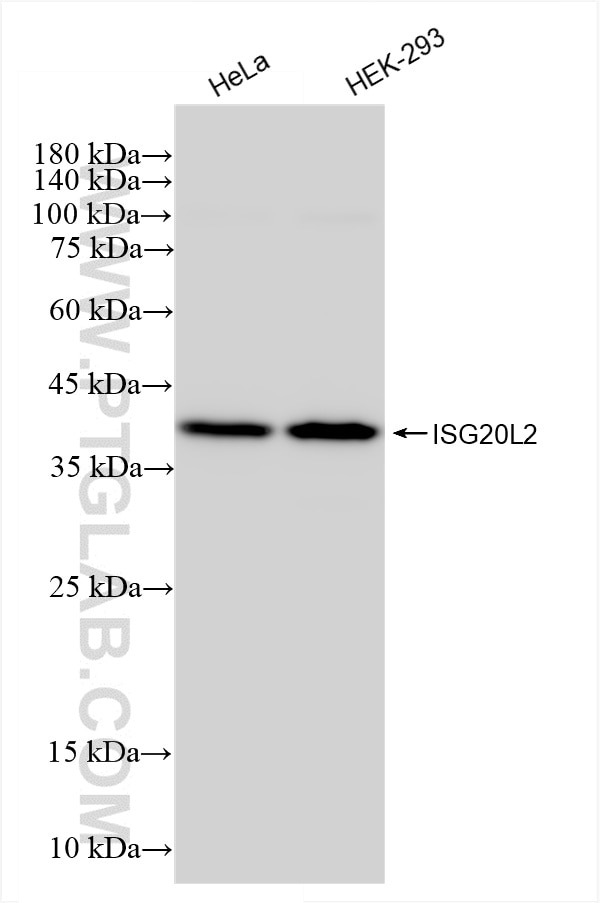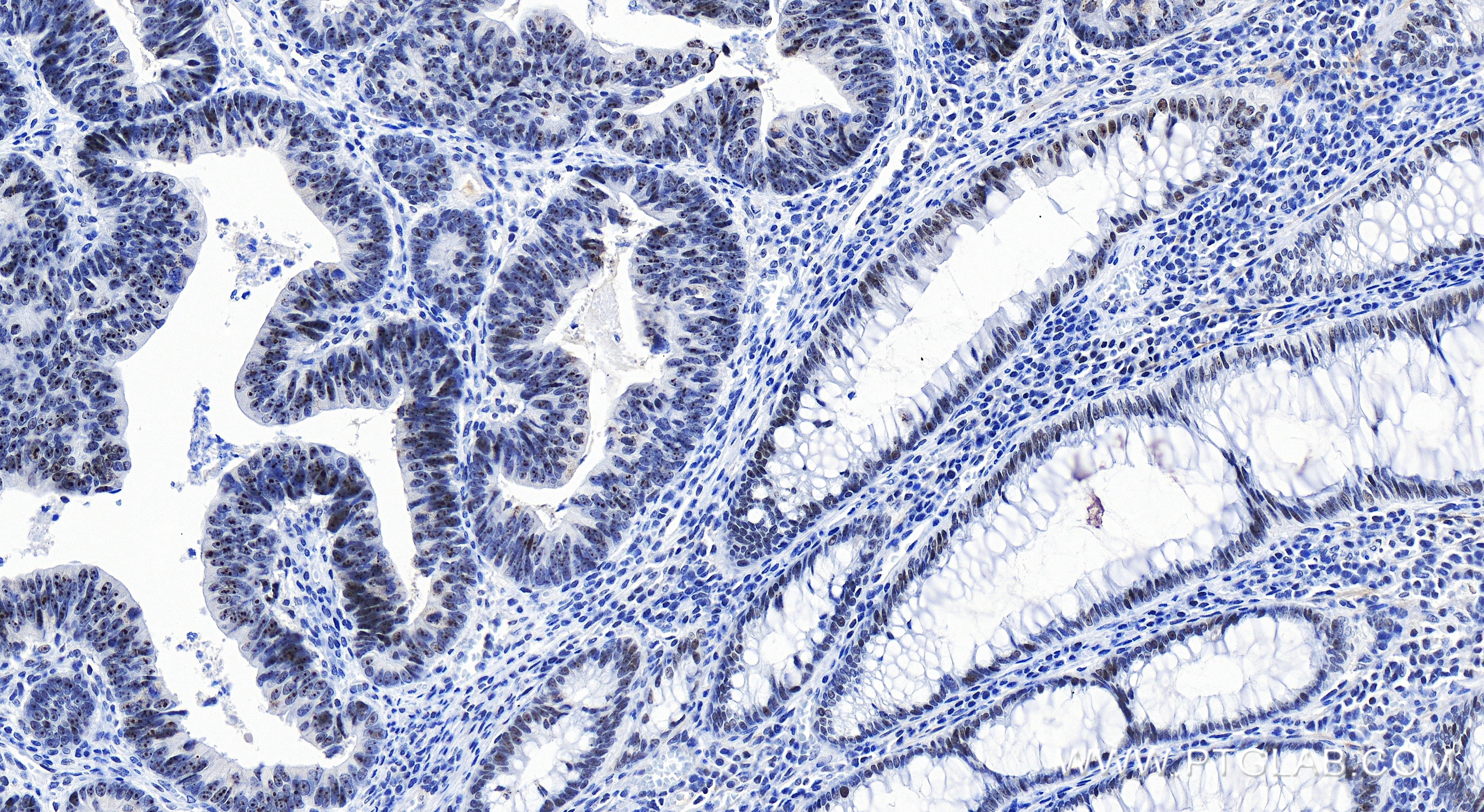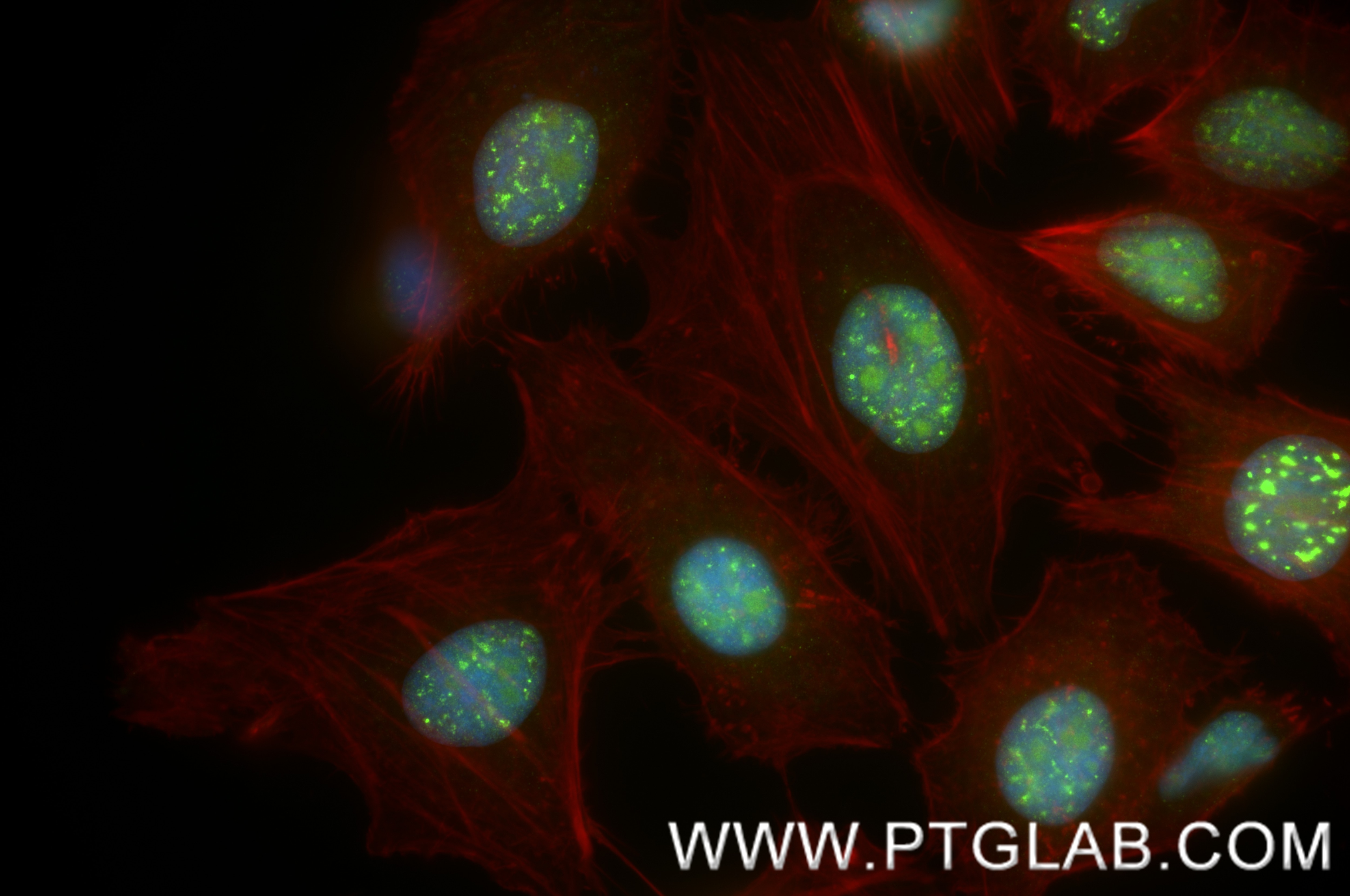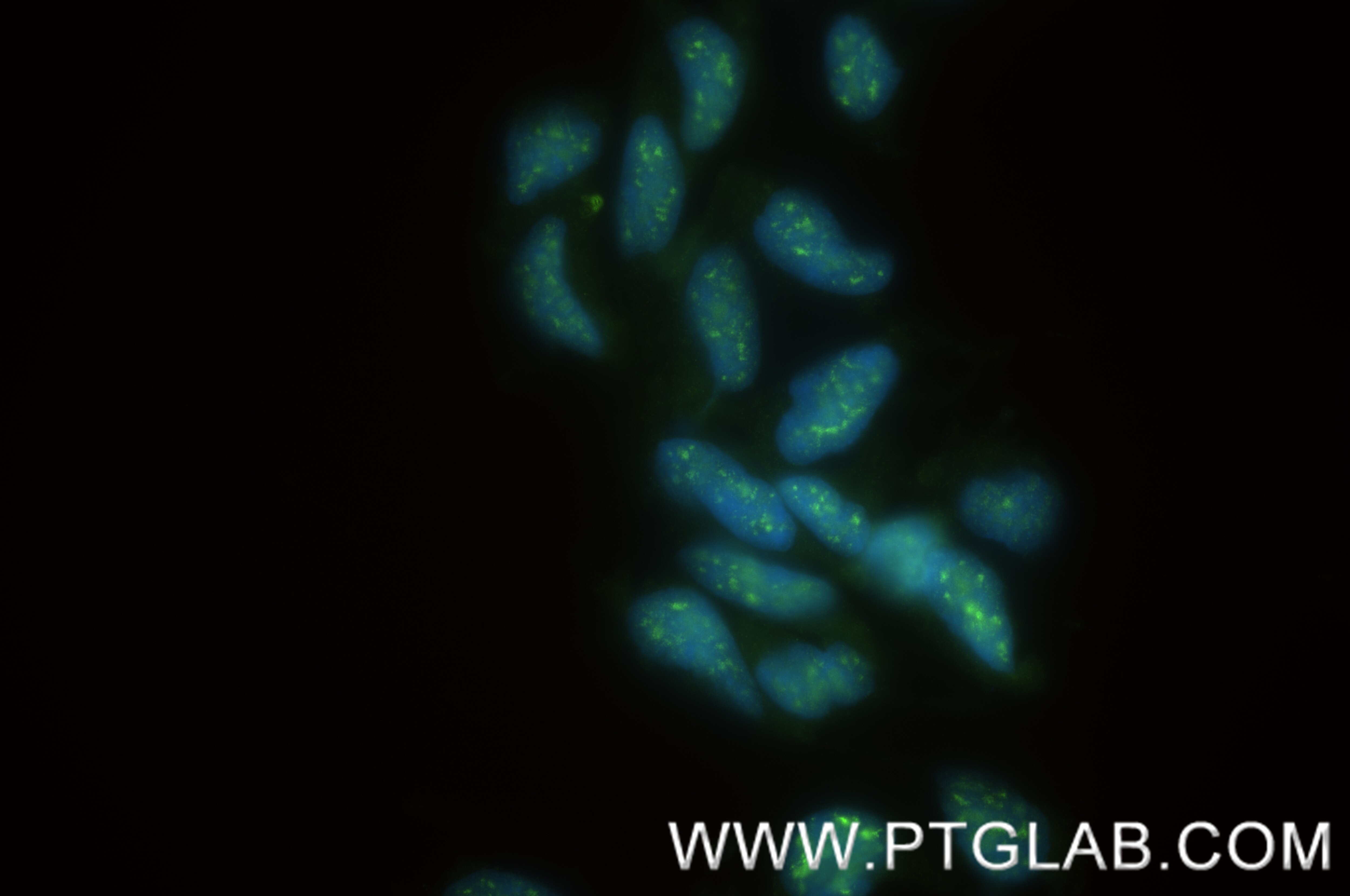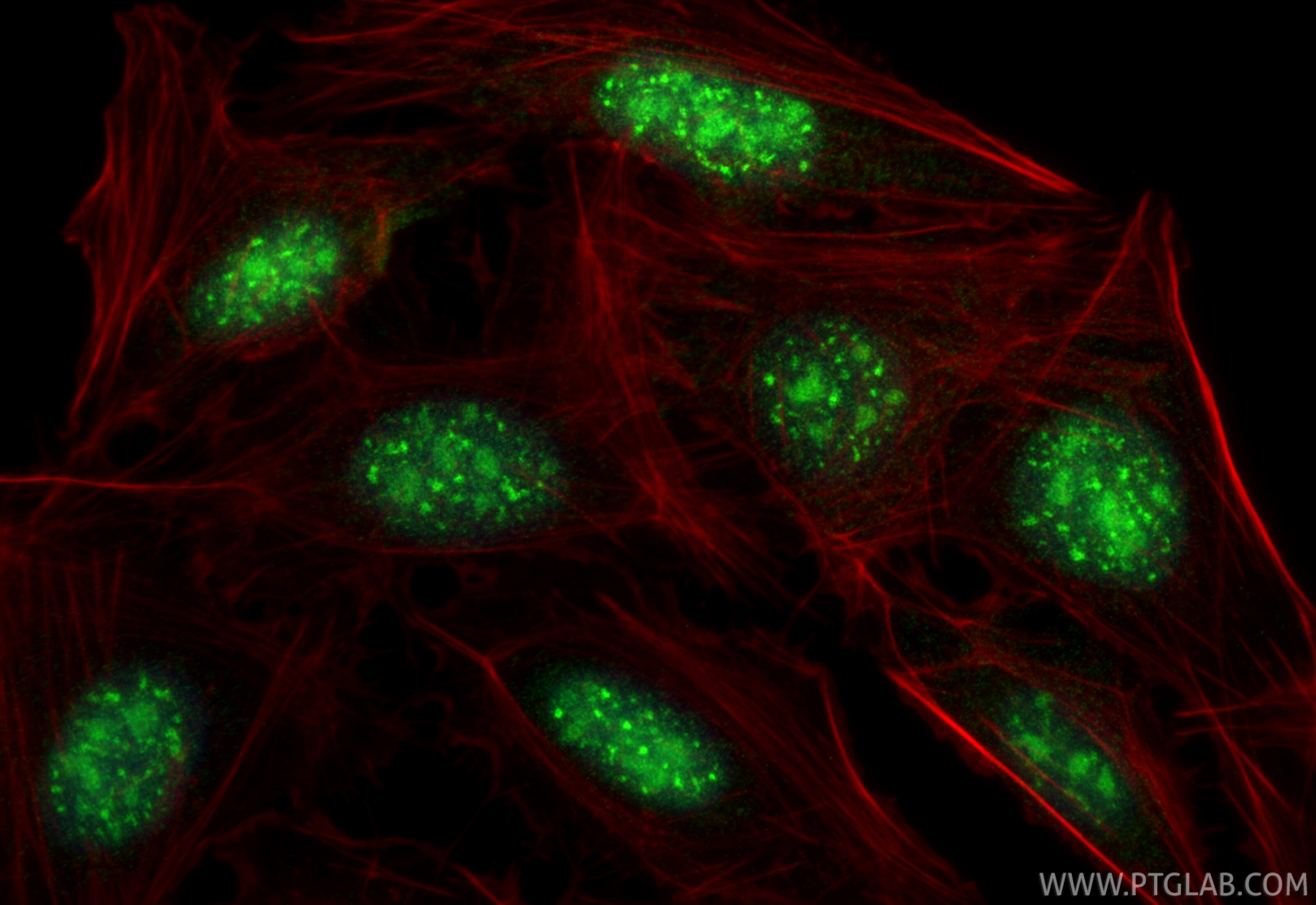Tested Applications
| Positive WB detected in | HeLa cells, HEK-293 cells |
| Positive IHC detected in | human colon cancer tissue Note: suggested antigen retrieval with TE buffer pH 9.0; (*) Alternatively, antigen retrieval may be performed with citrate buffer pH 6.0 |
| Positive IF/ICC detected in | HeLa cells, HEK-293 cells, U2OS cells |
Recommended dilution
| Application | Dilution |
|---|---|
| Western Blot (WB) | WB : 1:2000-1:10000 |
| Immunohistochemistry (IHC) | IHC : 1:50-1:500 |
| Immunofluorescence (IF)/ICC | IF/ICC : 1:50-1:500 |
| It is recommended that this reagent should be titrated in each testing system to obtain optimal results. | |
| Sample-dependent, Check data in validation data gallery. | |
Product Information
85992-2-RR targets ISG20L2 in WB, IHC, IF/ICC, ELISA applications and shows reactivity with human samples.
| Tested Reactivity | human |
| Host / Isotype | Rabbit / IgG |
| Class | Recombinant |
| Type | Antibody |
| Immunogen |
CatNo: Ag20026 Product name: Recombinant human ISG20L2 protein Source: e coli.-derived, PGEX-4T Tag: GST Domain: 1-353 aa of BC000575 Sequence: MSTLLLNLDFGEPPPKKALEGNAKHRNFVKKRRLLERRGFLSKKNQPPSKAPKLHSEPSKKGETPTVDGTWKTPSFPKKKTAASSNGSGQPLDKKAAVSWLTPAPSKKADSVAAKVDLLGEFQSALPKINSHPTRSQKKSSQKKSSKKNHPQKNAPQNSTQAHSENKCSGASQKLPRKMVAIDCEMVGTGPKGHVSSLARCSIVNYNGDVLYDEYILPPCHIVDYRTRWSGIRKQHMVNATPFKIARGQILKILTGKIVVGHAIHNDFKALQYFHPKSLTRDTSHIPPLNRKADCPENATMSLKHLTKKLLNRDIQVGKSGHSSVEDAQATMELYKLVEVEWEEHLARNPPTD Predict reactive species |
| Full Name | interferon stimulated exonuclease gene 20kDa-like 2 |
| Calculated Molecular Weight | 353 aa, 39 kDa |
| Observed Molecular Weight | 39 kDa |
| GenBank Accession Number | BC000575 |
| Gene Symbol | ISG20L2 |
| Gene ID (NCBI) | 81875 |
| Conjugate | Unconjugated |
| Form | Liquid |
| Purification Method | Protein A purification |
| UNIPROT ID | Q9H9L3 |
| Storage Buffer | PBS with 0.02% sodium azide and 50% glycerol, pH 7.3. |
| Storage Conditions | Store at -20°C. Stable for one year after shipment. Aliquoting is unnecessary for -20oC storage. 20ul sizes contain 0.1% BSA. |
Background Information
ISG20L2, also named HSD38, is a member of a vertebrate exonucleases family. ISG20L2 is composed of at least two functional domains, one at its N-terminal half allowing intracellular localization and association with the binding partners and the other at its C-terminal half bearing the 3` to 5` exoribonuclease activity. The molecular weight of ISG20L2 is 39 kDa (PMID: 18065403).
Protocols
| Product Specific Protocols | |
|---|---|
| IF protocol for ISG20L2 antibody 85992-2-RR | Download protocol |
| IHC protocol for ISG20L2 antibody 85992-2-RR | Download protocol |
| WB protocol for ISG20L2 antibody 85992-2-RR | Download protocol |
| Standard Protocols | |
|---|---|
| Click here to view our Standard Protocols |

